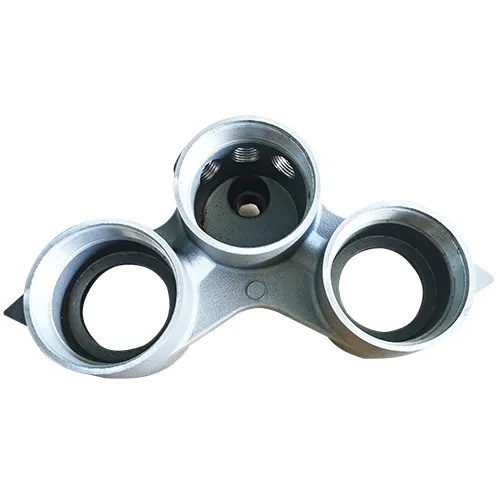Mobile:+86-311-808-126-83
Email:info@ydcastings.com
Aluminum Casting Die Manufacturing Techniques and Best Practices for Optimal Results
The Importance of Aluminum Casting Die in Modern Manufacturing
Aluminum casting die is a crucial component of the manufacturing industry, particularly in the production of complex and precise aluminum parts. The growing demand for lightweight and durable materials has led to an increased interest in aluminum casting as a method for creating everything from automotive parts to consumer electronics. In this article, we will explore the significance of aluminum casting dies, their applications, and the advantages they offer in various industries.
What is Aluminum Casting?
Aluminum casting is a process that involves pouring molten aluminum into a mold to create specific shapes. This technique allows for the production of intricate designs that can be challenging to achieve through other manufacturing processes. The casting process can be carried out using several methods, including sand casting, investment casting, and die casting, among others. Among these, die casting is particularly favored for high-volume production due to its speed and precision.
The Role of Casting Dies
The casting die is an essential part of the die casting process. It is a two-part mold that defines the shape of the final product. The die is typically made from extremely durable materials, such as steel, to withstand the high temperatures and pressures involved in the casting process. The design of the die is critical; it must be precisely engineered to accommodate the flow of molten aluminum and ensure the final product meets stringent quality standards.
Aluminum casting dies can be classified into two main categories permanent molds and semi-permanent molds. Permanent molds are designed for long-term use and can produce a higher number of castings before wear and tear necessitates replacement. Semi-permanent molds, on the other hand, might be used for shorter production runs and are often made from less durable materials.
Applications of Aluminum Casting Dies
Aluminum casting dies are utilized in a variety of industries. One of the most significant applications is in the automotive sector, where lightweight aluminum parts are essential for improving fuel efficiency and performance. Components such as engine blocks, transmission housings, and various brackets can be manufactured using aluminum casting dies.
aluminum casting die

The aerospace industry also relies heavily on aluminum casting, as it requires parts that are not only lightweight but also capable of withstanding extreme conditions. Aircraft components, such as landing gear and structural parts, often utilize aluminum casting techniques due to their favorable strength-to-weight ratio.
In the electronics industry, aluminum casting dies are employed to produce heat sinks, enclosures, and other components that benefit from aluminum's excellent thermal conductivity
. Similarly, consumer goods such as kitchen appliances and sporting equipment leverage aluminum's lightweight nature, which can improve usability and efficiency.Advantages of Aluminum Casting Dies
The use of aluminum casting dies offers numerous advantages. One of the primary benefits is the ability to produce complex shapes with high precision. This results in parts that typically require little to no post-processing, thus reducing production time and costs.
Another significant advantage is the repeatability of the die casting process. Once an aluminum casting die is created and configured, it can produce thousands of identical parts consistently. This aspect is particularly vital for businesses looking to maintain high-quality standards across large production runs.
Furthermore, aluminum itself is highly recyclable, making aluminum casting dies a more sustainable choice. The ability to reuse aluminum not only reduces waste but also lowers material costs, contributing to a more environmentally-friendly manufacturing process.
Conclusion
In summary, aluminum casting dies play a pivotal role in modern manufacturing by enabling the efficient production of lightweight and durable parts across various industries. Their importance in sectors such as automotive, aerospace, and electronics cannot be overstated. With the continual advancements in casting technologies and materials, the future of aluminum casting undoubtedly looks bright, fostering innovation and efficiency in manufacturing processes worldwide. As industries strive for more sustainable and cost-effective solutions, the significance of aluminum casting dies will only continue to grow.
-
Why Should You Invest in Superior Pump Castings for Your Equipment?NewsJun.09,2025
-
Unlock Performance Potential with Stainless Impellers and Aluminum End CapsNewsJun.09,2025
-
Revolutionize Your Machinery with Superior Cast Iron and Aluminum ComponentsNewsJun.09,2025
-
Revolutionize Fluid Dynamics with Premium Pump ComponentsNewsJun.09,2025
-
Optimizing Industrial Systems with Essential Valve ComponentsNewsJun.09,2025
-
Elevate Grid Efficiency with High-Precision Power CastingsNewsJun.09,2025











